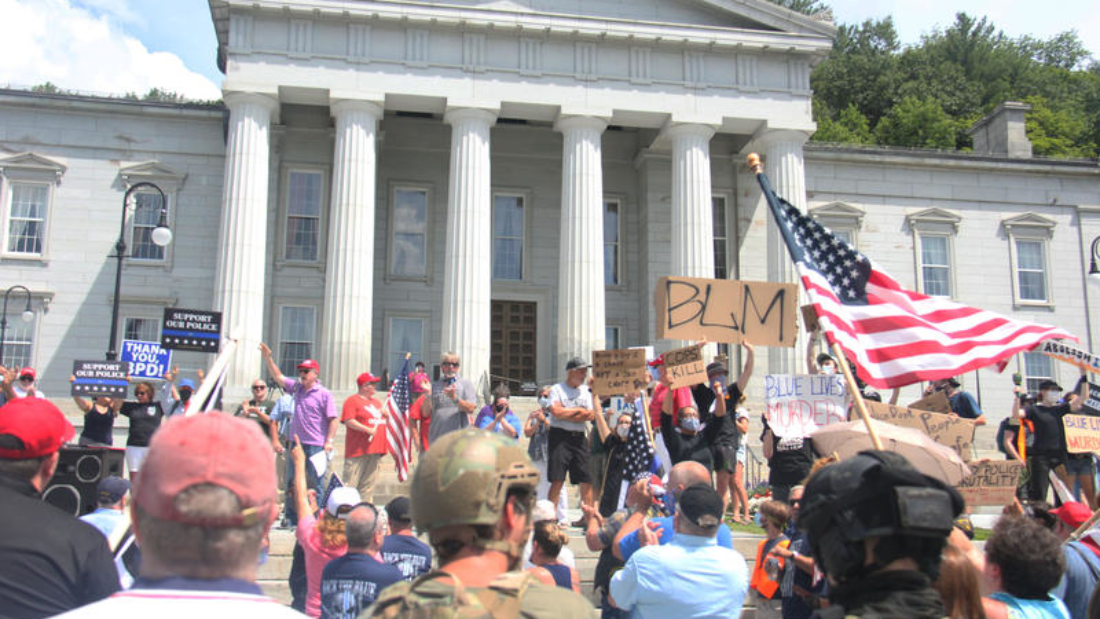Episode 211: Protests Spark Some Police Reforms in New England; The Case Against Call-Out Culture
Following the rise of protests against police brutality, we look at what has changed, from police reforms to employee walk-outs. Also on this week’s show, we talk to an activist who says today’s call-out culture is toxic — and who advocates “calling in.” Plus, refugees from the Democratic Republic of Congo find community in an Orthodox Armenian church in Rhode Island.
Poll Shows Vermonters Have Mixed Responses To Law Enforcement And Race
It’s been more than two months since tens of thousands of people began marching in protest, following the killing of George Floyd, Breonna Taylor and many other Black Americans by police. The protests planted seeds, inspiring long debates in the halls of governments, spurring employees to take a stand against their own companies and prompting some police reforms.
Connecticut passed a comprehensive law on police accountability. The Connecticut Mirror reports, among its measures, the state created an independent inspector general to investigate police misconduct, banned chokeholds in most circumstances and required body and dash cameras. New Hampshire and Vermont also banned chokeholds, and, as VPR’s Liam Elder-Connors reports, Vermont’s Gov. Phil Scott tied some state funding for local law enforcement to the collection of traffic stop data — something that was mandated years ago but isn’t consistently done.
A new Vermont Public Radio–Vermont PBS poll finds state residents have complicated, mixed feelings when it comes to law enforcement and race. While 61 percent of respondents said they had a “great deal” or “quite a lot” of confidence in their local law enforcement, about half also say police in Vermont “occasionally” or “regularly” discriminate against people of color.
“I think that everybody has implicit biases,” said Nancy Stockwell, a resident of Woodstock, Vermont.
Long-time Activist Loretta Ross Speaks Out Against The Call-Out Culture
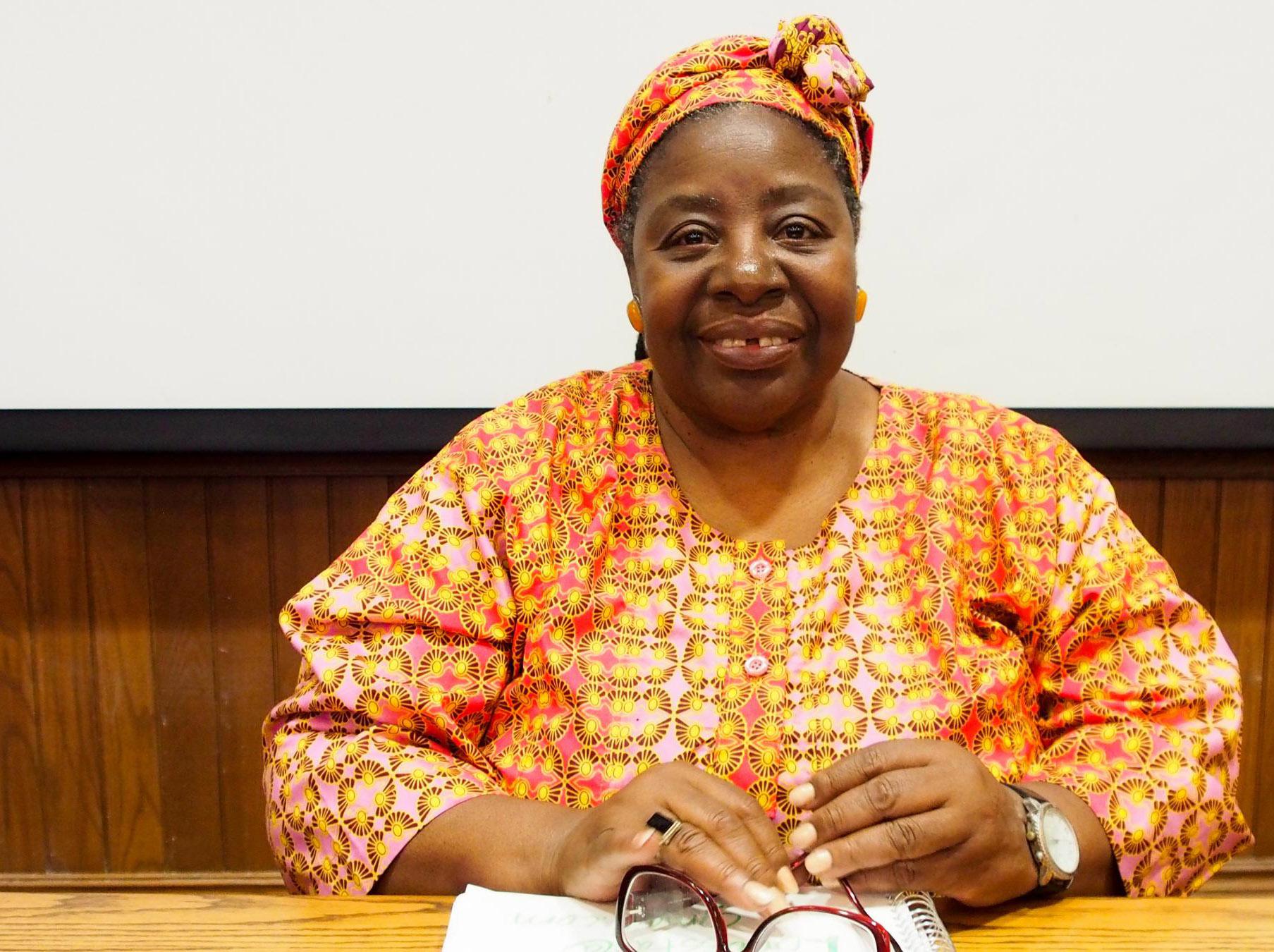
Activist and visiting Smith College Professor Loretta Ross. (Ben James/New England Public Media)
When a peer says something you think is racist, ignorant or wrong, what do you do? Most people agree that staying silent is not a good idea. But do you talk to them privately or take them to task publicly? Known as call-out culture, some think public shaming is a way to further social justice and change. But not everyone agrees with that approach. Loretta Ross is an activist, visiting associate professor at Smith College in Massachusetts and author of the upcoming book “Calling In the Calling Out Culture: Detoxing Our Movement,” which comes out in 2021. Ross strongly supports calling out people in power, but says call-out culture among peers of the same social status is “toxic.”
“They immediately get defensive because they feel like you’re attacking their character, their morality. … They’re not going to listen to someone who’s made them feel awful,” Ross told NEXT in an interview last year. “And so it doesn’t produce the positive outcome you may desire.”
We had Ross back on NEXT this week to talk about call-out culture in the context of recent protests against police violence and systemic racism in America. Ross says she’s witnessing a rise in “group think” since the protests, where people are advocating there is just one way to be an anti-racist activist. She advocates more openness to a variety of tactics and promotes the idea of “calling in” when someone makes a misstep, whether they say the wrong word or offend someone.
“I think that we need to seek a different set of tools that are centered on respecting not only the human rights of the person who was harmed, but the human rights of the person who did the harm,” she says. “Because no one comes out of the womb wanting to be a human rights violator. That is a trained … conditioning.”
Ross says “calling in” means holding the offender accountable – with love.
Black Lives Matter Movement Stirs Painful Divide In Local Vietnamese-American Community
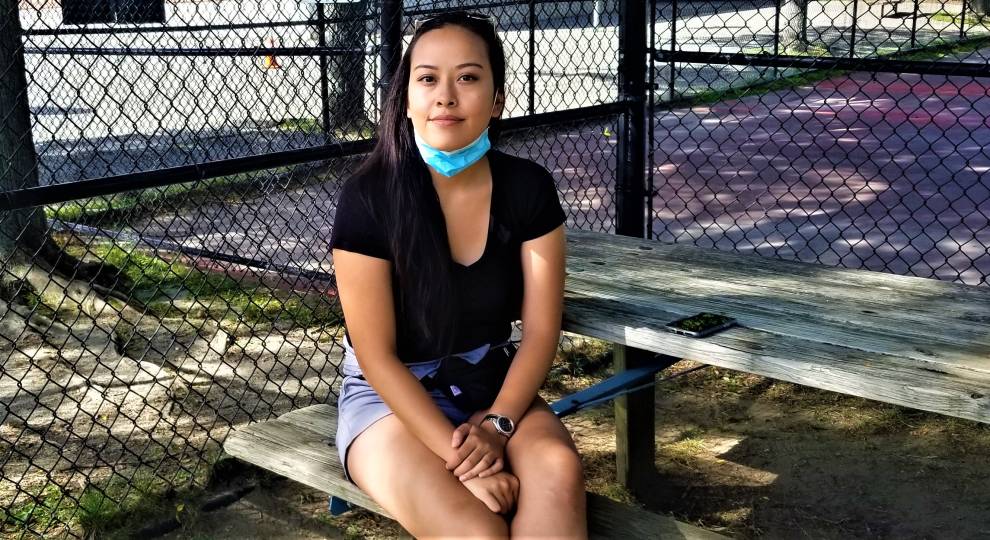
Tami Nguyen, a recent graduate of Boston University, is in her early 20’s. She believes that Vietnamese-Americans her age generally agree with the notion that Black Lives Matter. (Phillip Martin/WGBH News)
Communities across the country and in New England are coming to terms with the Black Lives Matter movement in different ways. As Phillip Martin of the WGBH News Center for Investigative Reporting reports, it’s an issue that has stirred up a painful divide in Vietnamese-American communities in Massachusetts.
“We can’t fight against racism directed towards our community while standing complicit in a system that disproportionately discriminates, devalues and criminalizes and brutalizes our Black friends and neighbors,” said Massachusetts Rep. Tram Nguyen.
Refugees From The Democratic Republic Of Congo Find Community In An Orthodox Armenian Church On Rhode Island
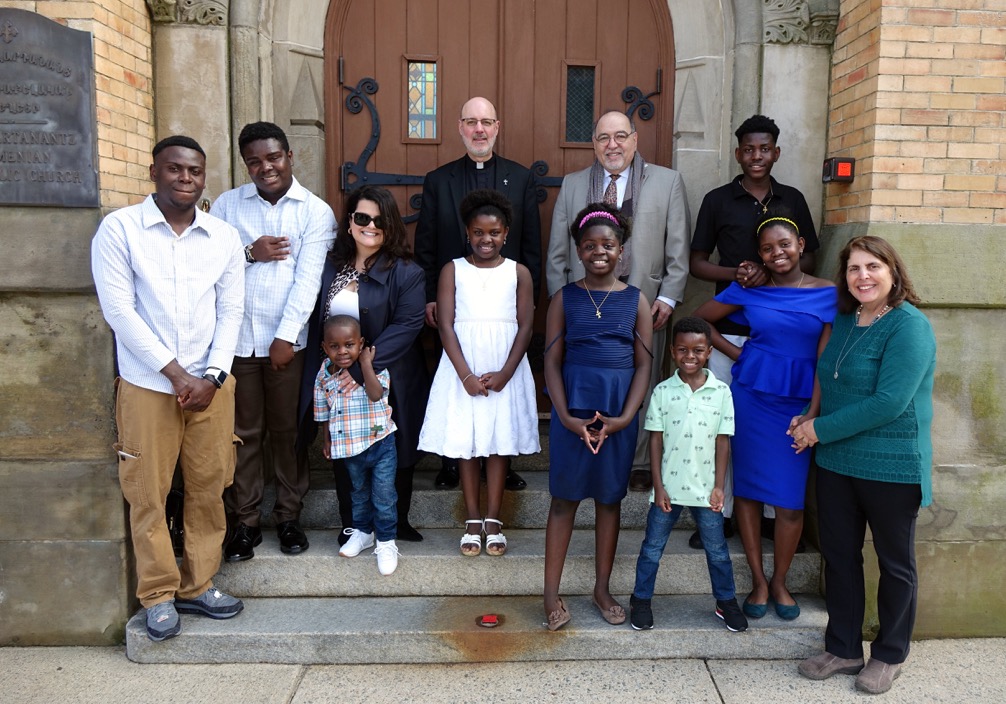
The eight Mulilikwa siblings on the day of their baptism at the Orthodox Armenian Church, St. Vartanantz, in Providence, R.I. They’re pictured with their godfather, Manoog Kaprielian, Rev. Kapriel Nazarian and two of their godmothers. (Courtesy Manoog Kaprielian)
In April 2019, eight siblings of the Mulilikwa family – refugees from the Democratic Republic of Congo – were baptized at St. Vartanantz, an Orthodox Armenian church in Providence, Rhode Island. It’s a rare occurrence for non-Armenians to join the church, which is one of the main places Armenian-Americans keep their culture alive.
“A quick change in that church comes every 600 years,” said Manoog Karielian, who introduced the family to his church and is the siblings’ godfather.
Now, as hosts Ana Gonzalez and Alex Nunes report for the podcast Mosaic, the community of Orthodox Armenians, immigrants with their own tragic history, is helping the Mulilikwas find their way to an American dream.
“Because when I talk to Manoog,” said Clement Mulilikwa, whose vision of America came from videos of 50 Cents, Lil Wayne and Chris Brown.” I say, ‘I don’t like America, what’s happening?’ and I say, ‘I need to have the car and to have the other things.’ He says, ‘No, everything goes step by step.’”
Mosaic is a podcast about the American immigrant experience and is produced at The Public’s Radio in Rhode Island. Season 2 of the show will premiere in September. You can catch up on Season 1 wherever you subscribe to podcasts.
Doug Glanville, On What The MLB Can Teach Us About The Coronavirus
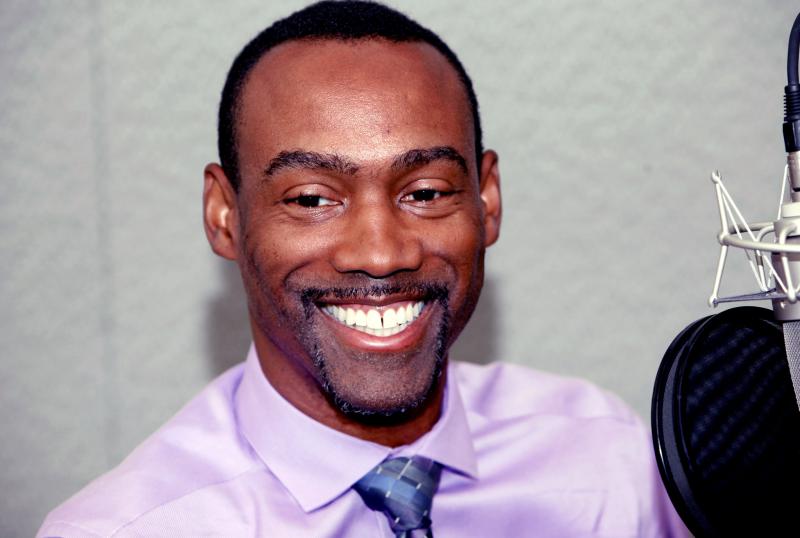
Doug Glanville in a file photo from 2015. (Chion Wolf/Connecticut Public)
It’s been three weeks since Major League Baseball’s Opening Day. Like other sports, teams have played in isolation and without fans. But they’ve taken steps to make the season feel normal, from canned crowd noise (like at this Red Sox game against the Mets) to cardboard cutouts of fans in the stadium.
Doug Glanville, a Connecticut-based ESPN analyst, author and former MLB player, says he thinks the canned noise is well done, but it doesn’t capture the whole spectrum of experiences a player has with fans.
“And I think that’s a good thing to recognize, with humility, that there’s something so magical and so unique that a fan brings to a game, that you can’t copy it,” Glanville told NEXT.
Glanville says recent coronavirus outbreaks among players and staff on the Miami Marlins and St. Louis Cardinals show the MLB will have to make adjustments to its virus protocols. But, he says, baseball can provide information and lessons in our broader fight against the virus as well. The MLB has power and privilege, with access to testing, good healthcare and nearly unlimited resources. Glanville wrote in a New York Times op-ed:
“Baseball’s success, then, will be our success; its failure, our failure. We want to know we can win this fight, without being curled up in a ball while waiting for a vaccine, even though we quietly understand that many variables that give these sports advantages in this fight are not fully available to the vast majority of people. Still, we hope that baseball’s eventual victory will wash over us as one.”
NEXT Wants to Hear From You:
What do you think about the state of activism today? How are you holding people accountable? Or do you feel like you’re not doing enough? Leave a voicemail on our comment line: 860-275-7595. Or send us an email at next@ctpublic.org. We look forward to hearing from you.
Also On This Week’s Show:
About NEXT
NEXT is produced at Connecticut Public Radio
Host/Producer: Morgan Springer
Executive Editor: Vanessa de la Torre
Senior Director: Catie Talarski
Intern: Daniela Luna
Contributors to this episode: Adrian Ma, Liam Elder-Connors, Phillip Martin, Ana Gonzalez and Alex Nunes.
Guests: Loretta Ross and Doug Glanville.
Music from New England musicians: Todd Merrell, “New England” by Goodnight Blue Moon, “Every October” by Chris Ross and the North, “Sequoia 2” by Binger, “Golden Hands” by Anjimile and “Illudere” by Latin Heartbeat Orchestra.
New to NEXT? You can find every episode or one you missed within our archives.
We want your feedback! Send critiques, suggestions, questions and ideas to next@ctpublic.org. Help us spread the word! If you like what you hear, rate and review us on iTunes.

